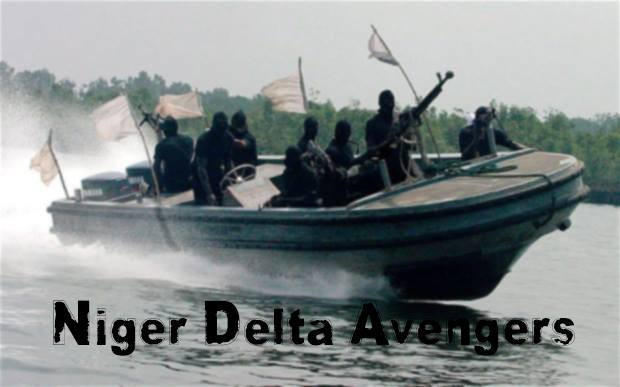Niger Delta Avengers deny killing soldiers as military crackdown against new militants continues
A new militant group in Nigeria's oil-rich Niger Delta region has denied claims that its members killed soldiers. The Niger Delta Avengers (NDA) took to Twitter to also reject allegations that the army arrested some of the militants.
The tweets follow a statement by the army claiming soldiers arrested 10 NDA members and averted a planned attack on an oil pipeline. The army also claimed that on two separate occasions, soldiers encountered "suspected vandals" who opened fire on the patrol teams.
NDA is the latest militant organisation to wage war against Nigeria due to perceived marginalisation in the Niger Delta. Earlier this year, attacks blamed on NDA partially halted oil production and forced Chevron and Royal Dutch Shell to close two plants following attacks linked to the group.
On 27 May, the group took to Twitter to claim responsibility for an attack at "Nembe 1, 2 and 3 Brass to Bonny Trunk Line belonging to Agip and Shell." The group also warned that "something big" was about to happen.
Our attention has the drawn to the arrest of 10 @NDAvengers boys by Nigeria Military.None of our Strike team has been arrested its all a lie
— Niger Delta Avengers (@NDAvengers) May 31, 2016
Nigeria Military also lied that NDA kill soldiers. we havnt engage in combat wth them bt if they want us to kill them let them come after us
— Niger Delta Avengers (@NDAvengers) May 31, 2016
Chief of Army Staff we not the ones killing your Soldiers STOP LYING pic.twitter.com/u51pqDNCph
— Niger Delta Avengers (@NDAvengers) May 31, 2016
Military presence in the area has increased following attacks. President Muhammadu Buhari has accused the NDA of vandalism and warned that the Nigerian government would deal with the group in the same way it is tackling Boko Haram terrorists in the country's north-east region.
The leader also announced he intends to meet with leaders in the Delta region to discuss possible ways to stop increasing violence. However, he added the military offensive would continue.
The birth of militant groups in Niger Delta
Militant groups in the oil-rich Niger Delta region took hold in the early 2000s following the deterioration of people's living conditions blamed on the increase of oil-related activities by foreign exploration corporations. Tensions flared up in the local communities as some ethnic groups felt they were being exploited and did not benefit from the crude oil on their land.
The repeated oil spills that considerably damaged the environment and affected people's health further deepened the communities' frustrations. After being elected in 2015, Buhari extended a 2009 amnesty granted to 30,000 former militants in the area.

Fuel crisis
The prolonged problem of attacks on oil pipelines, a foreign exchange crisis and the drop in global oil prices have exacerbated an ongoing fuel shortage in Nigeria, for which the previous administration had often been blamed.
Nigeria is Africa's biggest oil producer, but its lack of refineries mean the country has to export about 90% of its crude oil and import petroleum products at international prices. The government has been selling fuel to Nigerians at subsidised rates, reimbursing the difference to importers.
However, this changed in May 2016, when the government announced petrol prices would rise to 145 naira (50p), up from about 86.5 naira (30p). The move angered many, with trade and labour unions labelling the decision "criminal" and calling for a strike, which was later cancelled.
Nigeria up close: Check out our Flipboard magazine
© Copyright IBTimes 2025. All rights reserved.






















